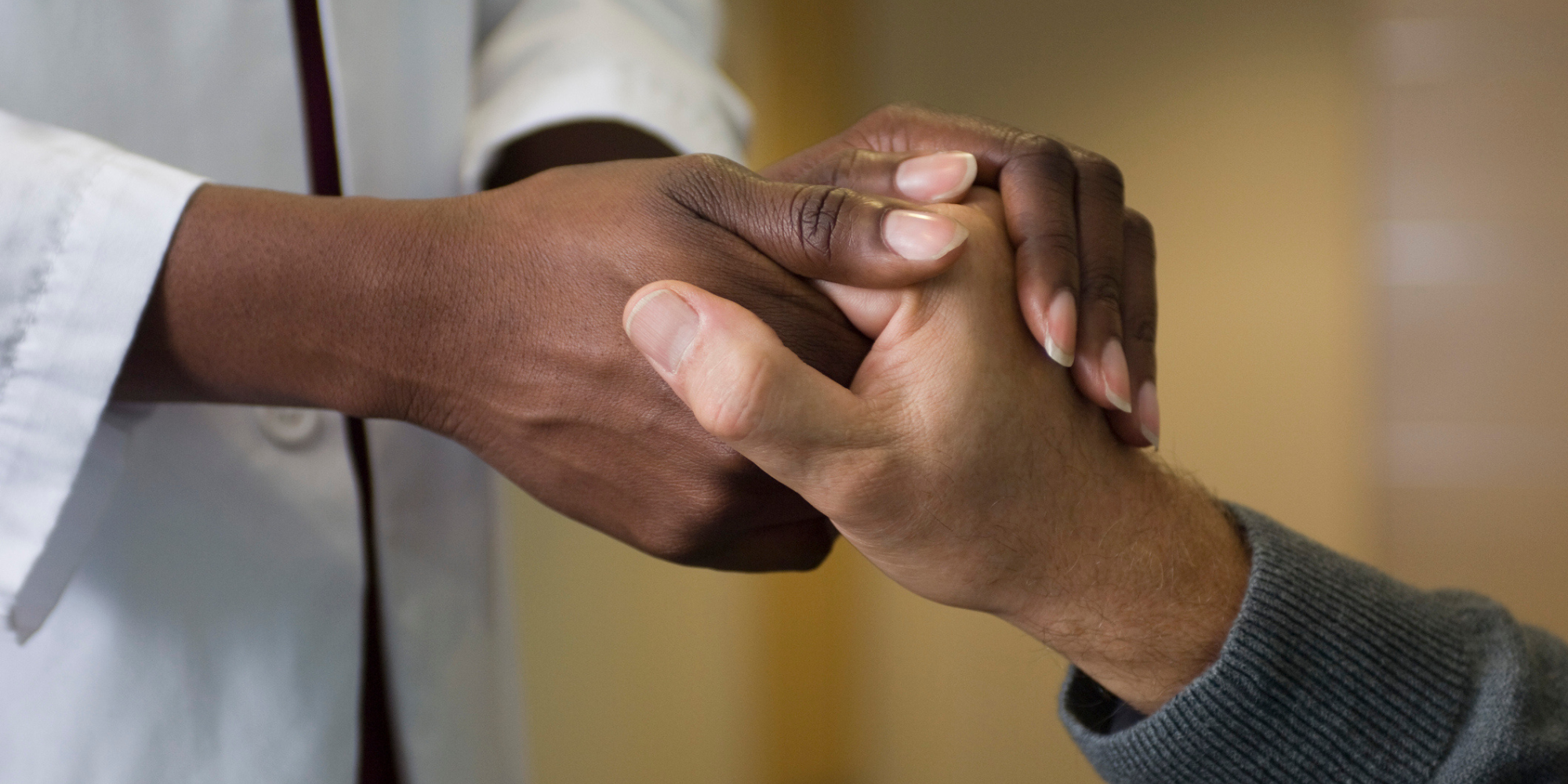As people with mental illnesses continue to encounter the criminal justice system, communities across the United States struggle to develop interventions and support to improve outcomes for these individuals, their service providers and the public.
How the criminal justice community engages people with mental illness is a matter of national concern. Untreated mental illness can lead to volatile situations that require law enforcement to intervene. These interactions can be difficult to resolve, require special training and create unique risks to the safety of all involved.
The National League of Cities (NLC) has long supported federal efforts to provide additional resources for veteran treatment courts and increased resources and training for first responders (law enforcement, fire, emergency medical service personnel, clinicians and others) to properly respond to mental health calls. Federal programs that fund joint efforts between law enforcement and health officials to reduce repeat calls for service and better serve people with mental illness are also crucial to reducing unnecessary interactions between police and the people with mental illness.
New Funding Opportunities
To help local governments establish collaborative projects between criminal justice and mental health partners, the Bureau of Justice Assistance in the U.S. Department of Justice announced the opening of the FY23 Justice and Mental Health Collaboration Program, comprised of two important grant programs that local governments can apply directly to. Both the Justice and Mental Health Collaboration Program and the Connect and Protect: Law Enforcement Behavioral Response Program are open for solicitation now.
The Justice and Mental Health Collaboration Program (funding opportunity) seeks to fund collaborative projects between criminal justice and mental health partners and help eligible entities plan, implement or expand a justice and mental health collaboration effort. This program encourages early intervention for individuals suffering from mental health and substance use disorders who are interacting with the criminal justice system; maximizes diversion opportunities for multisystem-involved individuals with mental illnesses or co-occurring mental and substance use disorders; promotes training for justice and treatment professionals; and facilitates communication, collaboration, and the delivery of support services among public safety professionals, treatment and related service providers and other community partners.
The Connect and Protect: Law Enforcement Behavioral Health Response Program is a specific funding opportunity to support law enforcement and behavioral health cross-system collaboration. The goal of the program is to improve the public health and safety responses to situations involving individuals with mental health disorders or co-occurring mental health substance use disorders that are coming into contact with the criminal justice system. The funds in this program can be used by eligible entities to design or enhance a law enforcement-behavioral health response for these types of scenarios.
As local leaders look to increase public safety in their communities in meaningful and lasting ways, the two funding opportunities through the Justice and Mental Health Collaboration Program could be a useful starting point to implementing these collaborative models in ways that work for their communities. Learn more about how cities are already working in and with collaborative response models and more information about the program below.
City Examples
Some cities have recognized that the involvement of uniformed, armed responders, even alongside clinicians, may unnecessarily escalate the response to calls service. Cities across the nation are leading innovation on co-response models and collaborating with the mental health and substance use systems and professions in a multitude of ways. Below are a few highlighted efforts regarding collaboration between public safety response and mental health/substance use response to get local leaders thinking about how they may employ these types of projects in their community.
The city of Wichita, Kansas, has been employing a collaborative public safety response since the launch of the Integrated Care Team pilot program in 2019. This city worked with Sedgwick County to develop a team comprised of law enforcement, paramedics, and mental health professionals to assist those in crisis and allow patrol officers to be available for other emergency calls. The program is a multidisciplinary, co-responder program aimed at providing resources to those in the community experiencing a mental health crisis. The response team is comprised of a qualified mental health professional, a law enforcement officer and a paramedic.
The city of Baltimore, Maryland launched the Behavioral Health 9-1-1 Diversion Pilot Program in 2021 with the goal of diverting certain behavioral health-related 9-1-1 calls from law enforcement to experienced mental health professionals through the Here2Help hotline. Housed within the city’s emergency response network, when 9-1-1 call takers identify a call as appropriate for diversion they transfer the call to the Here2Help line, a mental health services line operated by Baltimore Crisis Response, Inc. (BCRI) and staffed by trained mental health clinicians. The central mission of this pilot program is to match individuals to the most appropriate and available resources when they call for assistance and reduce unnecessary police encounters with people in behavioral crises.
The City of Colorado Springs, Colorado Police and Fire Department collaborated with AspenPointe, a local behavioral health organization, to form a specially staffed mobile integrated mental health emergency response team. First deployed in December 2014, the Community Response Team (CRT) consists of a fire department medical provider, a police department officer and a licensed clinical behavioral health social worker. The medical provider performs medical clearance and screens for psychiatric admission eligibility, while the police officer ensures scene safety, and the social worker provides behavioral health assistance. This approach significantly reduced admissions to the emergency department by directing individuals in crisis to community resources, like the local Crisis Stabilization Unit or county detoxification facility.
The City of Poulsbo, Washington launched a collaborative program between the police department and partners with behavioral health navigators in the city’s Behavioral Health Crisis Outreach Program in 2017. When officers identify individuals in need of behavioral health treatment or services, they can request the support of a navigator. Navigators are hired as police department employees and work in partnership with officers in the field and/or independently to help individuals proactively identify treatment options, overcome obstacles to accessing services, and improve communication between the criminal justice and behavioral health systems. Navigators are available in crisis situations but are primarily called in after police contact occurs to follow up with individuals, families, and caregivers.
How Can I Use These Grant Funds in My Community?
The grants offered through the Justice and Mental Health Collaboration Program aim to help eligible entities prepare comprehensive plans to implement collaboration programs that target qualified offenders and promote public safety and public health. Interested applicants are encouraged to check out the full solicitation notice for additional information on eligible projects and other criteria at this link.
The allowable uses of these grant funds are to create or expand the following services:
- Programs that support cooperative efforts by public safety officials and service providers (at any point in the system) to connect individuals suffering with mental health or mental health and substance use disorders with treatment and social services.
- Mental health courts or other court-based programs.
- Programs that offer specialized training for public safety officials and mental health providers in order to respond appropriately to individuals suffering from mental disorders.
- Programs that support intergovernmental cooperation between state and local governments to address enhanced support to individuals suffering from mental disorders.
The grants offered through Connect and Protect aim to help eligible entities design or enhance a law enforcement-behavioral health response to people with mental health disorders or co-occurring mental health substance use disorders who come into contact with law enforcement. Interested applicants are encouraged to check out the full solicitation notice for additional information on eligible projects and other criteria at this link.
Applicants should address all objectives relevant to their proposed project/program:
- Design and implement a crisis response program based on current best practice to assist law enforcement officers to improve encounters with individuals who have mental health disorders or co-occurring mental health substance use disorders. Plan and deliver a crisis response program, through coordination between law enforcement and a mental health agency, that includes services to improve or enhance the response.
- Pay salaries, as well as expenses such as training (overtime) and coordination activities, to design and implement a police-mental health collaboration program (PMHC).
- Engage residents through outreach and education to improve public health and public safety.
- Build positive community relations and trust through public communication strategies.
- Enhance officer knowledge and skills in responding to community members with mental health disorders or co-occurring mental health substance use disorders.
- Increase public safety and public health agencies’ capacity to develop and sustain the program by collecting data to inform practices, create stakeholder groups, develop policy, and encourage ongoing professional development.
- Seek guidance through BJA’s 14 law enforcement-mental health learning sites, then incorporate and build upon successful strategies for PMHCs.
How Do I Apply?
- Identify how your community’s needs can be met by either the JMHCP or the Connect and Protect Program. There are differences in what projects and programs are eligible for funding under each opportunity, so be sure to check out this link to see some examples of past awards for each program.
- If your local government entity has not done so, register with the U.S. System for Award Management (SAM) to get your Unique Entity ID to apply for federal grants.
- Compile your application resources as required by the solicitation notices linked above.
- First, applicants must submit their application to Grants.gov (JHMCP deadline: March 21, 8:59 PM ET; Connect and Protect deadline: April 24, 8:59 PM ET).
- Next, applicants must submit their application to JustGrants.usdoj.gov (JHMCP deadline: March 28, 8:59 PM ET; Connect and Protect deadline: May 1, 8:59 PM ET).
Other Resources
- NLC Reimagining Public Safety Toolkit
- NLC Responding to Individuals in Behavioral Health Crisis via Co-Responder Models: The Roles of Cities, Counties, Law Enforcement, and Providers Brief
- NLC Addressing Mental Health Substance Use and Homelessness Initiative
- Bureau of Justice Assistance Police-Mental Health Collaboration Toolkit










